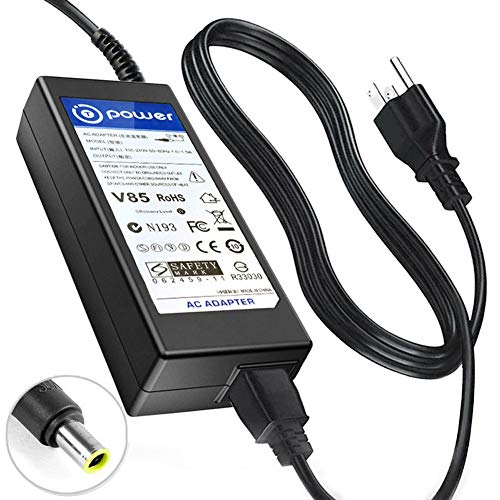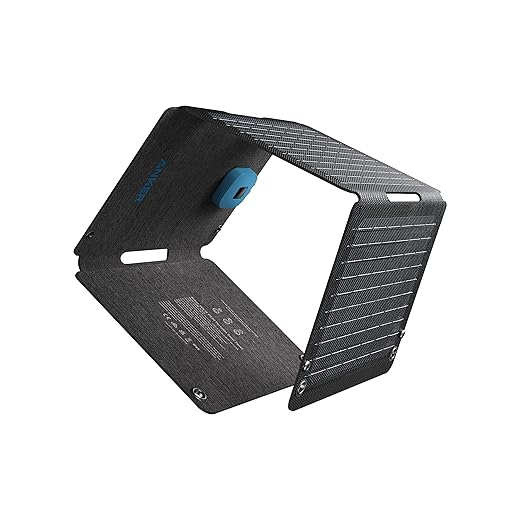Have you ever considered investing in portable solar panels but wondered how long they would actually last? We understand your concern. As fellow solar enthusiasts, we know that durability and longevity are crucial factors to consider when making any purchase, especially when it comes to sustainable energy solutions. In this blog post, we will delve into the question of how long portable solar panels can truly last. Our goal is to provide you with the necessary information and insights so that you can make an informed decision and enjoy the benefits of portable solar power for years to come. So, let’s dive in and explore the lifespan of these incredible devices!
Top Picks for Portable Solar Panels
What are portable solar panels?
In today’s world, where technology is an integral part of our lives, having a reliable source of power is essential, especially when we are on the go or in remote areas. Portable solar panels have emerged as a revolutionary solution to this problem. In this blog, we will explore what portable solar panels are, how they work, and why they are becoming increasingly popular.
Definition and Functionality
Portable solar panels are compact and lightweight devices that convert sunlight into electricity. They are designed to be easily transportable, allowing users to harness the power of the sun wherever they go. These panels are typically made up of photovoltaic cells that capture solar energy and convert it into usable electrical energy. Here’s how they work:
- Photovoltaic Cells: Portable solar panels consist of numerous photovoltaic cells, typically made of silicon or other semiconductor materials. These cells contain layers of material that generate electricity when exposed to sunlight.
- Energy Conversion: When sunlight hits the photovoltaic cells, it excites the electrons, freeing them from their atoms. This generates direct current (DC) electricity.
- Charge Controller: Portable solar panels often come equipped with a charge controller, which regulates the flow of electricity from the solar panel to the battery. It ensures that the battery is charged efficiently and protects it from overcharging.
- Battery and Power Outputs: The generated electricity can be stored in a battery connected to the solar panel. This stored energy can then be used to power various devices and appliances, either directly or through a power inverter for alternating current (AC) devices.
Benefits and Applications
Portable solar panels offer several benefits that make them an excellent choice for various applications. Let’s take a look at some key advantages and common uses of portable solar panels:
Benefits:
- Portability: Portable solar panels are compact, lightweight, and easily foldable, making them highly portable and convenient for users to carry them anywhere.
- Clean and Renewable Energy: By harnessing the power of sunlight, portable solar panels generate clean and renewable energy without producing harmful emissions or contributing to climate change.
- Versatility: These panels can be used to charge a wide range of devices and appliances, such as smartphones, laptops, cameras, camping lights, portable fans, and even small appliances like refrigerators and power tools.
- Cost Savings: Harnessing solar energy for charging devices eliminates the need for traditional sources of electricity, reducing energy bills, and saving money over time.
Applications:
- Camping and Outdoor Activities: Portable solar panels are a popular choice among campers, hikers, and outdoor enthusiasts who need to power their devices and appliances in remote areas where electricity is not readily available.
- Emergency and Disaster Preparedness: In times of emergencies or natural disasters, portable solar panels can provide a reliable source of power for charging phones, radios, and other essential devices.
- Boating and RVing: For those who love boating or traveling in recreational vehicles (RVs), portable solar panels offer a convenient way to ensure a steady power supply on the go.
- Off-grid Living: People living in off-grid locations or remote areas can rely on portable solar panels to meet their energy needs without the need for grid connection.
Factors Affecting the Lifespan of Portable Solar Panels
Portable solar panels have gained popularity in recent years as an efficient and eco-friendly way to harness the power of the sun. However, not all portable solar panels are created equal, and their lifespan can vary depending on several factors. In this section, we will explore the important considerations that impact the longevity of portable solar panels.
1. Quality of Materials Used
The quality of the materials used in the construction of portable solar panels plays a crucial role in determining their lifespan. Higher-quality materials are typically more durable and can withstand various environmental conditions. Here are some key factors to consider when evaluating the quality of materials:
- Solar cells: The efficiency and durability of solar panels depend on the quality of the cells used. Look for panels that use high-efficiency solar cells such as monocrystalline or polycrystalline cells.
- Frame: The frame of the solar panel should be made of sturdy and corrosion-resistant materials such as aluminum or stainless steel.
- Backsheet: A high-quality backsheet protects the solar cells from moisture and other external factors. Look for panels with durable and weather-resistant backsheets.
2. Manufacturing Process
The manufacturing process can significantly impact the lifespan of portable solar panels. A well-executed manufacturing process ensures that the panels are built to withstand various stresses and potential failure points. Here are some aspects to consider regarding the manufacturing process:
- Quality control: Manufacturers with strict quality control processes tend to produce more reliable and long-lasting solar panels.
- Assembly techniques: The way solar panels are assembled can affect their durability. Look for panels that use advanced manufacturing techniques, such as automated soldering and laser cutting, to minimize the risk of assembly defects.
- Testing procedures: Manufacturers that subject their panels to rigorous testing, such as thermal cycling and damp heat tests, ensure that their products can endure harsh conditions over time.
3. Durability and Resistance
Portable solar panels are often exposed to various environmental conditions, which can affect their lifespan. It is essential to choose panels that are designed to be durable and resistant to the elements. Consider the following factors when evaluating the durability of portable solar panels:
- Weather resistance: Look for panels that are rated for outdoor use and can withstand extreme temperatures, high humidity, and UV radiation.
- Impact resistance: Portable solar panels may be subject to accidental impacts during transportation or outdoor activities. Ensure that the panels have a high impact resistance rating to prevent damage.
- Waterproofing: Panels with proper waterproofing measures, such as tight seals and protective coatings, are less prone to water damage and moisture penetration.
4. Proper Maintenance and Care
While the quality of materials and the manufacturing process are vital factors in determining the lifespan of portable solar panels, proper maintenance and care are equally crucial. Here are some tips to help you extend the lifespan of your portable solar panels:
- Regular cleaning: Keep your panels clean by removing dirt, debris, and snow regularly. This helps maintain their efficiency and prevents any potential damage caused by foreign particles.
- Avoid shading: Ensure that your panels are not shaded by trees, buildings, or other objects, as shadows can greatly reduce their power output.
- Inspect for damage: Periodically inspect your panels for any signs of damage, such as cracks or loose connections. Promptly address any issues to prevent further deterioration.
- Correct storage: When not in use, store your portable solar panels in a clean and dry location, protected from extreme temperatures and direct sunlight.
By considering these factors and taking proper care of your portable solar panels, you can maximize their lifespan and enjoy the benefits of renewable energy for years to come.
Key Points:
- Quality materials such as high-efficiency solar cells and sturdy frames contribute to longer lifespan.
- Manufacturing processes with strict quality control and advanced assembly techniques ensure durability.
- Durability factors include weather resistance, impact resistance, and waterproofing.
- Regular maintenance, avoiding shading, and proper storage are essential for longevity.
Average lifespan of portable solar panels
Portable solar panels are a convenient and sustainable way to harness the power of the sun when you’re on the go. Whether you’re camping, hiking, or simply enjoying some outdoor activities, these compact devices can provide a reliable source of clean energy. But how long can you expect them to last? In this article, we will delve into the average lifespan of portable solar panels, factors that can influence longevity, and the warranties offered by manufacturers.
Factors Affecting Lifespan
The lifespan of portable solar panels can vary depending on several factors. Here are some key considerations that can influence how long your panels will last:
- Quality of the Panels: The quality of the materials and construction used in the manufacturing of portable solar panels plays a significant role in their lifespan. Higher-quality panels tend to have better durability and can withstand a wider range of environmental conditions.
- Environmental Conditions: The conditions your panels are exposed to can impact their lifespan. Factors such as extreme temperatures, humidity, and exposure to harsh weather elements like hail or heavy rain can degrade the performance and longevity of the panels.
- Frequency of Use: How frequently you use your portable solar panels can also affect their lifespan. Panels that are used more often may experience more wear and tear compared to those used sporadically.
Average Lifespan Estimate
While individual experiences may vary, the average lifespan of portable solar panels typically falls within the range of 10 to 25 years. However, it’s important to note that this estimate is based on panels that are well-maintained and not exposed to extreme conditions. Here are some additional details and guidelines to keep in mind:
- Lower-end Panels: Portable solar panels that fall on the lower end of the price range may have a shorter lifespan, typically around 10 to 15 years. These panels might not have the same level of durability and performance as higher-end options.
- Higher-end Panels: On the other hand, high-quality portable solar panels, although they may come with a higher price tag, can last anywhere from 20 to 25 years. These panels often feature robust construction, superior components, and advanced technologies to ensure longevity and reliable performance.
- Manufacturer Warranties: Many reputable manufacturers provide warranties for their portable solar panels, ranging from 5 to 15 years. These warranties often cover potential defects in materials and workmanship. It’s crucial to read the fine print and understand the specific terms and conditions of the warranty before making a purchase.
Benefits of Longer Lifespan
Investing in portable solar panels with a longer lifespan brings several benefits, including:
- Return on Investment: With a longer lifespan, your portable solar panels will continue to generate clean energy, allowing you to reap the benefits of reduced electricity costs or avoiding the need for grid power altogether.
- Sustainability: Extendable product lifespans contribute to a more sustainable lifestyle by reducing waste and the need for frequent replacements.
- Versatility: Panels with a longer lifespan provide more opportunities for use and enjoyment over the years, whether it’s for camping trips, outdoor events, or emergency situations.
In conclusion, the average lifespan of portable solar panels can range from 10 to 25 years, with higher-quality options typically lasting longer. Considering the factors that influence longevity and understanding the warranties offered by manufacturers are essential steps in choosing the right panels for your needs. By investing in durable and reliable solar panels, you can harness the power of the sun for many years to come while reducing your environmental impact.
The lifespan and key takeaways of portable solar panels
In conclusion, we have examined the lifespan of portable solar panels and have provided valuable insights into the factors that can impact their longevity. By investing in high-quality panels and implementing regular maintenance, it is possible to maximize the lifespan of these devices. We hope that the information provided in this blog post will help you make informed decisions when purchasing and taking care of your portable solar panels.














